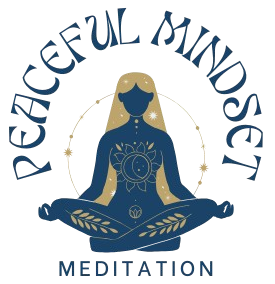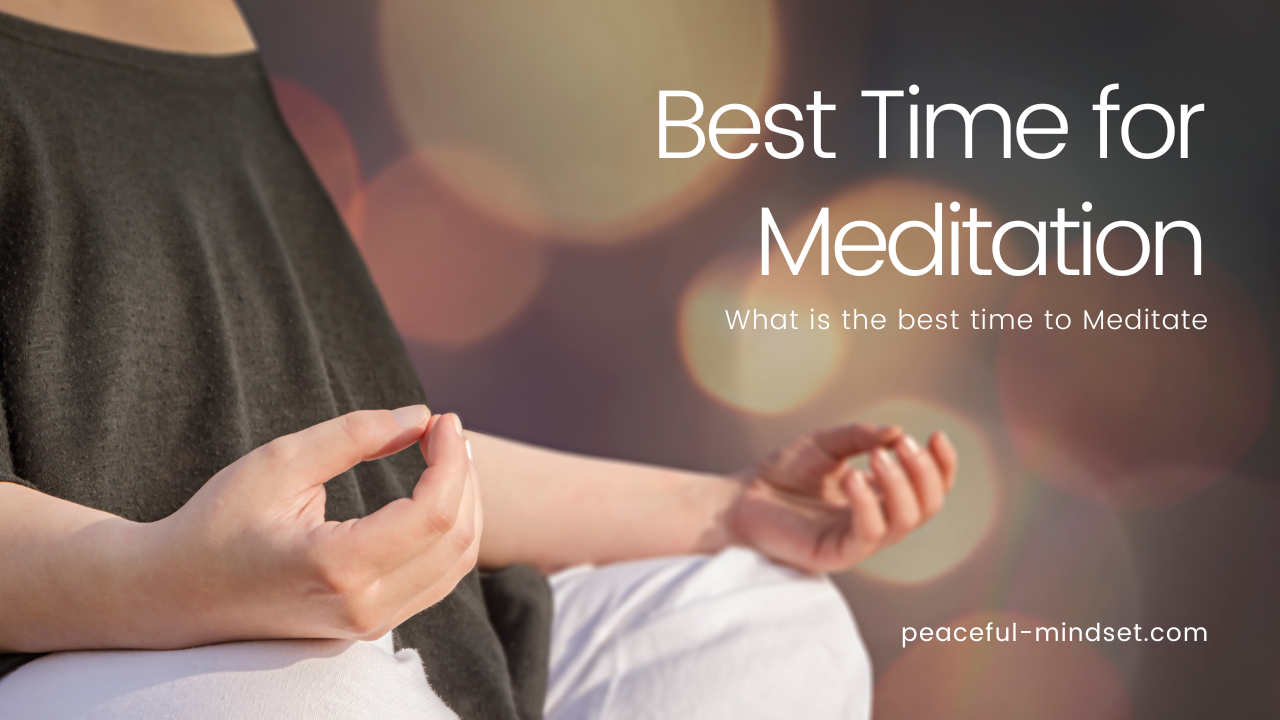The Best Time to Meditate: A Complete Guide
Finding the right Time to Meditate is essential. Used for centuries, meditation is a potent technique for enhancing mental clarity, reducing stress, and promoting overall well-being.
Still, one of the most regularly asked questions among both novices and seasoned meditators is: When is the best time to meditate?
Although the best time differs depending on personal calendars and objectives, some times of the day provide special advantages even if there is no clear response.
This paper helps you to identify the ideal meditation timetable that fits your lifestyle by discussing the benefits and cons of meditating at various times.
1. Morning Meditation: The Power of a Fresh Start
Benefits of Morning Meditation:
- Morning meditation clears your mind before distractions set in, allowing you a fresh and concentrated start.
- Morning meditation lowers stress and raises awareness, so setting a good tone for the day and improving production.
- Early hours tend to be calmer, offering a calm setting for more deep meditation.
- Meditating first thing in the morning can help to create a consistent routine.
Drawbacks of Morning Meditation:
- Sleepiness: If you’re not a morning person, grogginess could make concentrating difficult.
- Busy schedules might make fitting in meditation seem difficult.
READ MORE: Guided Meditation
Best Practices for Morning Meditation:
- Start with 5–10 minutes and progressively lengthen the time.
- Pick an energizing strategy: Guided visualization, mantra meditation, or breathing exercises can all assist to wake you up.
- Combine it with an additional practice: To strengthen consistency, meditate immediately following tooth brushing or stretching.
2. Midday Meditation: A Reset for Your Day
Benefits of Midday Meditation:
- Meditation at noon can help to reduce tension built up from daily obligations, meetings, or job.
- By renewing your thoughts and lowering weariness, it helps to fight the noon slump.
- Improved decision-making: Better decision-making follows from improved focus and cognitive function, which a brief mindfulness break can help to enhance.
Drawbacks of Midday Meditation:
- Finding a Quiet Space: Especially in a hectic office, it could be difficult to locate a calm setting.
- Time Management: Midday obligations could make it difficult to set aside time for meditation.
Best Practices for Midday Meditation:
- A 10–15-minute session can be sufficient to refresh without affecting your day.
- Apps like Headspace or Calm provide brief, organized meditations ideal for a fast break.
- Practice conscious breathing: A few minutes of deep breathing at your workstation can assist to refresh your mind.
3. Evening Meditation: Unwinding and Letting Go
Benefits of Evening Meditation:
- Helps to let go of stress and anxiety accumulated during the day.
- Relaxing meditation methods can help to improve sleep quality.
- Evening meditation offers time for self-reflection and thankfulness.
Drawbacks of Evening Meditation:
- Too much weariness could make it difficult for you to concentrate or cause you to sleep.
- Meditating too late could disturb family time or sleep rituals.
Best Practices for Evening Meditation:
- Select a soothing method: Body scan meditation, progressive relaxation, or guided sleep meditation could help.
- For a calming experience, dim the lights, play gentle music, or apply aromatherapy.
- Practicing at the same time every night might help strengthen the habit.
4. Nighttime Meditation: Preparing for Restful Sleep
Benefits of Nighttime Meditation:
- Deep Relaxation: It facilitates the shift from an active day to a peaceful condition.
- Meditation can help to lower insomnia and encourage deeper sleep cycles, thereby improving sleep quality.
- Reduces overthinking: before bed, helps to calm racing thoughts.
Drawbacks of Nighttime Meditation:
- You might doze off before finishing your meditation.
- Unpredictability: Maintaining a consistent practice could be more difficult if your schedule is inconsistent.
Best Practices for Nighttime Meditation:
- Apply sleep-oriented strategies: Deep breathing exercises or yoga Nidra might help with relaxing.
- If required, lie down; unlike conventional seated meditation, lying down may be more beneficial for sleep readiness.
Which Time Is Best for You?
While each Time to Meditate has its own advantages, the best option depends on your personal goals and lifestyle. Here’s a quick guide to help you decide:
- Morning Meditation: Ideal for developing a routine, mental clarity, and productivity enhancement.
- Midday Meditation: Perfect for mental rejuvenation, higher energy, and stress reduction.
- Evening Meditation: Excellent for relaxing, self-reflection, and enhancing sleep quality.
- Recommended for people with sleep problems or excessive thinking.
- Steer clear of stimulating activities: Active techniques such as Kundalini meditation could keep you awake.
Final Thoughts
Consistency is the key component of meditation.
No matter what hour you select, frequent practice will deliver the best advantages.
Try out various times and approaches to find what suits you best.
Keep in mind that finding the right Time to Meditate is a personal journey. The important thing is to discover a practice that improves your well-being and fits naturally into your life—whether you meditate in the morning to begin your day or at night to unwind.

